- ALL SERVICES
- • Salesforce Consulting Services
- • Managed Services
- • Simplification of Interfaces
- • Data Migration and Processing
- • Architectural Solutions and Scoping
- • Code Review, QA and Support
- • Applications Development
- • Pre-sales and Solutions Consulting
- • Technical Audit and Support
- • Custom Applications Development
- • AI Apps
What is Salesforce
Health Cloud
Health Cloud
• Date: June 2025 •
Estimated reading time: 8 minutes
Estimated reading time: 8 minutes
Subscribe for more useful content
We promise we'll not spam your mailbox!
By submitting you agree to receive a newsletter from Twistellar. You can unsubscribe anytime.
- Introduction to Salesforce Health Cloud
- Challenges that Healthcare Organizations Experience
- Who Uses Salesforce Health Cloud?
- Key Features of Salesforce Health Cloud
- Salesforce Health Cloud Capabilities
- Key Business Advantages of Salesforce Health Cloud
- Pros and Cons of Salesforce Health Cloud
- Real-World Use Cases
- FAQ: Salesforce Health Cloud
According to the Salesforce Connected Healthcare Consumer Report, 71% of consumers expect personalized support from their healthcare providers — whether that’s tailored communication, real-time updates, or coordinated care plans. Yet, many organizations still rely on fragmented systems, outdated patient records, and siloed teams, making it nearly impossible to deliver consistent, high-quality care at scale.
The Twistellar team most often helps its clients struggle with:
- Disconnected systems
- Fragmented patient records
- Limited team collaboration
These issues prevent the delivery of consistent, high-quality care at a time when expectations are rising.
This is where Salesforce Health Cloud comes in — a purpose-built CRM platform designed specifically for the healthcare industry.
It empowers providers, payers, life sciences companies, and MedTech firms by bringing together clinical and non-clinical data into one unified system.

Contents:
Introduction to Salesforce Health Cloud
Salesforce Health Cloud is a CRM platform built specifically for healthcare organizations. But it's not just a tool for doctors — it's a platform that minimises errors, increases patient satisfaction, and allows you to expand your processes. It also helps manage patient relationships, streamline care coordination, and ensure compliance with regulations like HIPAA and GDPR.
Built on the world’s top AI-powered CRM, Health Cloud combines clinical data, social determinants of health, and administrative records into one centralized view, giving medical teams full visibility into each patient's journey.

It is used by:
- Hospitals
- Clinics
- Health insurance companies
- Medical device manufacturers
- Pharmaceutical firms
- Clinical research organizations
While not an electronic medical record system (EMR), Health Cloud can be integrated with existing electronic health record systems (EHR) to enrich patient profiles and improve decision-making across departments.
Challenges that Healthcare Organizations Experience
Healthcare institutions worldwide face increasingly complex demands:
- Fragmented data across multiple systems
- Limited visibility into the full patient journey
- Poor communication between departments and specialists
- Low patient engagement
- Regulatory compliance requirements
These challenges result in operational inefficiencies, increased costs, and suboptimal patient outcomes. Besides, how will you manage the increase in patient numbers if you cannot even give a single doctor access to all the information today?
The solution lies in integrated digital platforms that unify all aspects of care delivery. And that’s exactly what Salesforce Health Cloud was developed to do.
Who Uses Salesforce Health Cloud?
Stakeholder | Use case |
Providers | Hospitals, clinics, ambulatory centers — managing patient interactions and care plans |
Payers | Insurance companies, government agencies — improving claims processing and member engagement |
MedTech & device makers | Field service, asset tracking, and physician engagement |
Pharma companies | Clinical trial management, sales enablement, and patient adherence programs |
Clinical research orgs | Streamlining patient recruitment and trial coordination |
Key Features of Salesforce Health Cloud
Here are the core capabilities that make Salesforce Health Cloud a game-changer for healthcare organizations.
Patient 360 View
Unifies clinical history, medications, appointments, and care plans into one centralized profile. In this case, doctors get immediate access to comprehensive patient records, reducing errors and enhancing treatment decisions.
Care Coordination
Facilitates real-time collaboration among care teams, ensuring seamless transitions and coordinated patient journeys. Teams can share updates, track progress, and align on treatment plans within the same interface.
HIPAA & GDPR Compliance
Designed with security first in mind, featuring encryption, role-based access control, and audit trails. Ensures sensitive patient data remains secure while meeting global compliance standards.

Appointment Management
Streamlines scheduling, reduces no-shows, and improves the overall patient experience.
Referring Physician Networks
Automatically processes referral intake and strengthens relationships with referring physicians.
Smart Sales for MedTech
Tracks physician interactions, training history, and device usage trends to optimize field sales efforts.
These functions are not just convenient for doctors. They affect operational efficiency, patient satisfaction, and revenue forecasting. So if you don't start using a CRM system to analyze these metrics, someone else will do it first — and get closer to your patients.
If you're considering implementation, make sure to explore our step-by-step guide to successful Salesforce Implementation.
Salesforce Health Cloud Capabilities
Salesforce Health Cloud brings together a range of features designed to modernize the way healthcare organizations operate. Built on the same Customer 360 Platform as Vlocity, it leverages industry-specific data models and workflows that are also used across sectors like utilities, telecoms, and insurance.
- Jared MilliganCountry Manager, Twistellar USAAlthough Health Cloud can operate autonomously, integrating with third-party systems is necessary to unlock its full potential.
These include EHR, benefits and insurance validation, provider registries, and appointment scheduling systems.
Additionally, integration with Marketing Cloud would enhance patient engagement and personalized communication.
Unified Data Integration
Salesforce Health Cloud ensures that all patient data flows smoothly from EHRs, labs, IoT devices, and other clinical tools, without requiring manual entry or complex integrations. The less scattered the data is, the higher the quality of service and the lower the cost of errors. If you’re looking to connect Salesforce with enterprise-level platforms like Epic or Cerner, it’s highly possible.
Scalable Architecture
Whether you're a local clinic or a national hospital chain, Health Cloud adapts to your size, complexity, and growth plans, with flexible deployment options and modular design. No matter what stage of development your organization is at, Health Cloud scales with you, without costly reimplementation.
Surely, starting with Salesforce can be overwhelming sometimes, especially if you’re not sure where to begin. But Twistellar offers scoping sessions tailored to your business needs, so you can start strong and scale smarter.
Intelligent Automation
Salesforce Health Cloud leverages AI-driven tools to predict patient needs, automate tasks, and reduce administrative burden — part of Salesforce’s broader push into AI-powered care coordination. This saves time, reduces human error, and improves demand forecasting.
For a deeper dive into how AI is shaping up in healthcare, check out Salesforce AI in Healthcare.

Want to understand how these capabilities translate into real-world benefits? Check out our guide on the advantages of using Salesforce as a healthcare CRM.
Key Business Advantages of Salesforce Health Cloud
Based on our experience working with healthcare providers, these are the areas where Health Cloud makes a real impact:
Personalized Care Journeys
Unify clinical, social, and behavioral data to build individualized care plans — improving patient engagement and reducing no-shows.
Smoother Payer-Patient Communication
Simplify insurance validation, eligibility checks, and benefit explanations — so patients understand their options without confusion.
Improved Treatment Adherence
Automated follow-up messages and digital care plans help patients stay on track with medication, appointments, and post-treatment routines.
MedTech Field Service Optimization
Track physician engagement, equipment usage, and training history — giving sales teams actionable insights for better decision-making.
Scalable Data Integration
From EHRs to IoT devices, Health Cloud supports seamless data flow across systems, reducing manual work and increasing accuracy.
According to data shared by Salesforce, MIMIT Healthcare, a USA-based healthcare provider, achieved a 459% ROI within three months by optimizing patient flow and communication using Health Cloud, while also improving satisfaction rates.
Pros and Cons of Salesforce Health Cloud
The healthcare sector is increasingly turning to Salesforce Health Cloud as a means of managing patient relationships and streamlining clinical operations. While it offers strong capabilities for data unification and care coordination, it has limitations, particularly with regard to language support and scalability for smaller organizations. Below are the main pros and cons that we have observed when working with clients across Europe.
Pros:
- Care coordination: Enables real-time collaboration between caregivers.
- Data integration: Combines EHRs, diagnostic tools, and wearables.
- Efficiency gains: Automates workflows and reduces redundant tasks.
- Patient engagement: Improves participation through personalized plans and real-time communication.
Cons:
- Language support: Currently available only in English, French, German, Spanish, Japanese, Korean, Dutch, Portuguese, Finnish, and Traditional Chinese.
- View limitations: Displays up to 500 patient records at once.
- Cost: High entry price; best suited for mid-market and enterprise clients.
Real-World Use Cases
Salesforce Health Cloud supports a variety of applications across the healthcare landscape:
- Appointment management: Helps reduce revenue leakage and enables seamless patient scheduling.
- Referral intake processing: Standardizes and accelerates referrals for faster, more efficient care coordination.
- Prior authorization automation: Minimizes steps required to get approvals for treatments or procedures.
- MedTech field service & asset tracking: Tracks and maintains medical equipment efficiently.
- Smart sales enablement for MedTech: Monitors key physician interactions and training histories over time.
- Physician network development: Builds strong relationships with current and new referring physicians.
All these functions affect key metrics — from turnover to employee and patient satisfaction.
We have helped Danish engineering and construction companies, non-profit organizations, fintech providers, and SaaS companies expand their CRM capabilities with Salesforce. Check out our extensive portfolio.
Conclusion
Salesforce Health Cloud is redefining how healthcare organizations manage patient relationships, coordinate care, and maintain regulatory compliance.
By integrating clinical, social, and administrative data, it gives providers a unified 360-degree view of every patient. This enables providers to deliver more informed, timely, and effective care.
Whether you’re a hospital, clinic, MedTech firm, or pharmaceutical company, Salesforce Health Cloud offers a scalable, future-ready solution to meet evolving patient expectations.
If you have any questions, please get in touch with us and we will be happy to answer them.
FAQ: Salesforce Health Cloud
While both are customer-facing Salesforce solutions, Service Cloud is general-purpose and used across industries, whereas Health Cloud is tailored specifically for healthcare. It includes specialized objects, templates, and workflows for managing patient data and care coordination.
Salesforce Health Cloud is a premium enterprise-grade solution with pricing that depends on your organization’s size, scope, and regional agreements.
As of March 2025, you can expect the price per user/month to start from approximately:
Important: These figures are indicative only. The actual price is determined by Salesforce based on your specific requirements, number of licenses, contract type (annual vs multi-year), and regional policies. Many companies also need additional services like integration, customization, or training, which affect total cost.
As of March 2025, you can expect the price per user/month to start from approximately:
- $300–$700+ (for core editions like Enterprise and Unlimited)
- $700+ (for advanced AI-driven editions with Einstein, Data Cloud, and Slack integration)
Important: These figures are indicative only. The actual price is determined by Salesforce based on your specific requirements, number of licenses, contract type (annual vs multi-year), and regional policies. Many companies also need additional services like integration, customization, or training, which affect total cost.
Salesforce Health Cloud is used for:
- Centralizing patient information
- Enhancing care team collaboration
- Managing referrals and prior authorizations
- Supporting MedTech and pharmaceutical sales enablement
No, Salesforce Health Cloud is not an Electronic Medical Record (EMR) system. However, it can be integrated with existing EMRs to create a richer, 360-degree patient view.
Yes. As healthcare becomes more data-driven and patient-centric, the demand for Salesforce Health Cloud continues to grow. Organizations are increasingly adopting this solution to improve data visibility, operational efficiency, and patient engagement.
Salesforce Health Cloud objects are custom or standard database tables that are used to store and manage healthcare-related data. This data includes information on patients, appointments, care plans, and health conditions. These objects facilitate structured data management and improved communication between care teams.
The Salesforce Health Cloud data model extends the standard Salesforce object model with industry-specific extensions. It enables healthcare organizations to manage patient data, clinical workflows, and care coordination more effectively. You can also integrate these objects with Journey Builder to create personalized patient experiences based on their actions or changes in status.
Yes, Health Cloud is designed to connect with leading EHR platforms, allowing you to pull relevant patient data without replacing your current system.
Global providers and multinational organizations, especially in the US, EU, and Asia-Pacific regions.
Yes, through integrations with video platforms and virtual care tools.
Twistellar's team has carried out a number of industry-oriented projects and we are always open to discuss yours!
Our deep understanding of Salesforce platform ensures successful handling of projects in any domain
By submitting you agree to receive a newsletter from Twistellar. You can unsubscribe anytime.
Our Best Articles and Salesforce Overviews
Feeling like teaming up with us at Twistellar? We are excited too! Whether you'd like to customize your org, build a bespoke application or integrate a third-party tool, Twistellar is ready to help you.
Get in touch to discuss your Salesforce ideas!


